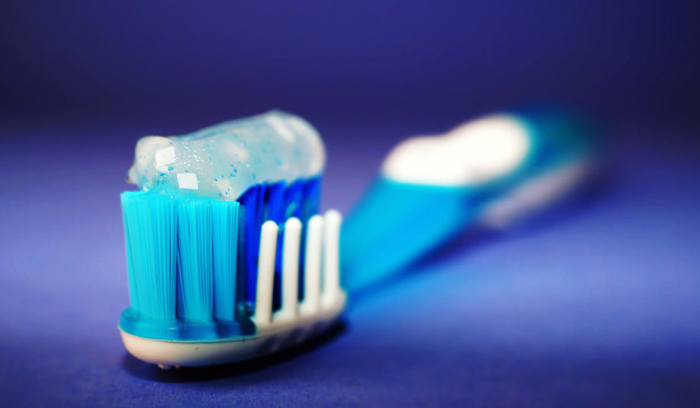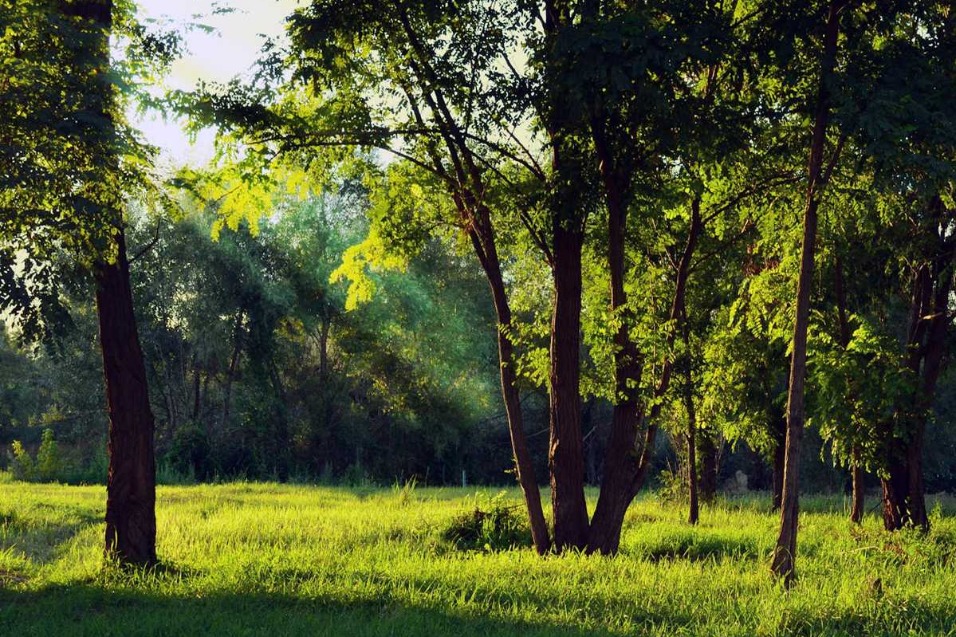你真的會(huì)刷牙嗎?刷牙最該刷的其實(shí)不是牙齒 How to properly brush your teeth
中國(guó)日?qǐng)?bào)網(wǎng) 2024-04-03 16:37

Brushing your teeth effectively lowers your chances of getting a host of chronic diseases, as well as keeping your teeth and gums healthy. But the majority of us are doing it wrong.
有效刷牙可以大大降低患上多種慢性疾病的風(fēng)險(xiǎn),同時(shí)也能保持牙齒和牙齦的健康。但我們大多數(shù)人刷牙的方式都是錯(cuò)誤的。
In Sweden, one study found as few as one in 10 people practice the best brushing technique. The British health insurer Bupa found that almost half of respondents did not know how to brush their teeth properly in a survey of 2,000 people in the UK.
瑞典的一項(xiàng)研究發(fā)現(xiàn),只有十分之一的人掌握了最佳的刷牙技巧。英國(guó)健康保險(xiǎn)公司Bupa在一項(xiàng)涵蓋了2000名英國(guó)人的調(diào)查中發(fā)現(xiàn),近半數(shù)受訪者不知道如何正確刷牙。
So what exactly are most of us getting wrong, and how can we change our routine to make sure we brush our teeth effectively? Here's how to properly brush your teeth, according to experts.
那么我們大多數(shù)人到底錯(cuò)在哪里?我們應(yīng)該如何改變?nèi)粘A?xí)慣以確保我們有效地刷牙呢?來(lái)看看專(zhuān)家建議的正確刷牙方法。

"Lots of patients understand that what they need to do is remove food remnants," says Josefine Hirschfeld, associate professor and specialist in restorative dentistry at the University of Birmingham in the UK. "That is only partially true. It's much more important to remove bacteria from the teeth."
英國(guó)伯明翰大學(xué)副教授、修復(fù)牙科學(xué)專(zhuān)家約瑟芬·赫希菲爾德說(shuō):“很多患者知道刷牙需要清除食物殘?jiān)K麄冎徽f(shuō)對(duì)了一半。事實(shí)上,清除牙齒上的細(xì)菌要重要得多。”
These bacteria and other microorganisms grow inside everyone's mouth, and form a claggy biofilm commonly known as dental plaque. It is made up of around 700 different species of bacteria, the second-greatest diversity in the human body after the gut, as well as a host of fungi and viruses. "They are living in the sticky film stuck to the teeth and also to the soft tissues," says Hirschfeld. "This sticky film can't be easily rinsed off – it really needs to be manually cleaned."
這些細(xì)菌和其他微生物在每個(gè)人的口腔內(nèi)生長(zhǎng),并形成稱(chēng)為牙菌斑的粘稠生物膜。它由大約700種不同的細(xì)菌組成,細(xì)菌多樣性在人類(lèi)體內(nèi)僅次于腸道,還有大量的真菌和病毒。赫希菲爾德說(shuō):“它們生活在粘附在牙齒和軟組織上的粘性膜中。這種粘性膜不能輕易被沖洗干凈——它真的需要手動(dòng)清潔。”
The most important place to remove it from is not in fact the teeth, but the gumline. This is where microbes are best able to infiltrate the gum tissue and cause inflammation, and eventually conditions such as periodontitis. In fact, "brushing your teeth" is something of a misnomer. "Think of brushing your gumline, rather than the teeth themselves," says Hirschfeld. "The teeth will then be brushed automatically."
最該清潔的部位實(shí)際上不是牙齒,而是牙齦。這是微生物最容易入侵牙齦組織并引發(fā)炎癥的地方,最終可能導(dǎo)致牙周炎等病癥。實(shí)際上,“刷牙”這個(gè)詞有點(diǎn)用詞不當(dāng)。赫希菲爾德說(shuō):“刷牙該刷的是牙齦,而不是牙齒本身。在刷牙齦時(shí)牙齒也會(huì)被刷到。”
Brushing too hard, especially with a firmer-bristled brush, can cause trauma to the gums. Small tears in the soft tissue caused by overzealous brushing are an opportunity for bacteria to enter the bloodstream. And grating the brush's bristles over the enamel can wear miniscule grooves in the tooth, which add up to significant erosion over time.
刷牙太用力,特別是使用硬毛牙刷,可能會(huì)對(duì)牙齦造成創(chuàng)傷。過(guò)度用力刷牙造成的軟組織小撕裂讓細(xì)菌有了進(jìn)入血液的機(jī)會(huì)。而且,牙刷硬毛在牙釉質(zhì)上磨擦?xí)コ鑫⑿〉陌疾郏S著時(shí)間的推移,這些凹槽會(huì)累積成顯著的侵蝕。
There are some toothbrushes and toothpastes on the market that will literally "brush the teeth away", says Hirschfeld. Highly abrasive toothpastes, which are often marked as "whitening", and hard-bristled brushes are notorious for this, particularly when used together.
赫希菲爾德說(shuō),市場(chǎng)上有一些牙刷和牙膏真的會(huì)“把牙齒刷掉”。通常標(biāo)有“美白”字樣的高研磨性牙膏,如果再加上臭名昭著的硬毛牙刷,可謂是“事半功倍”。
Is it better to brush your teeth before or after breakfast? It depends on what you've had to eat. Acidic food and drink – such as citrus fruit, fruit juice and coffee – would be a reason to brush before rather than after breakfast.
早餐前還是早餐后刷牙更好?這取決于你早餐吃什么。如果你早餐要吃酸性食物和飲料,如柑橘類(lèi)水果、果汁和咖啡,那么你應(yīng)該在早餐前而不是早餐后刷牙。
Acids attack the enamel layer of the teeth and soften it for a certain amount of time. This strips out some of the key components of the enamel – calcium and phosphate – though these are replaced over a period of hours by minerals in the saliva. But if you don't wait for that self-repair to happen, then this eroded surface will become very susceptible to just being brushed off.
酸性物質(zhì)會(huì)攻擊牙釉質(zhì)并使其軟化一段時(shí)間。牙釉質(zhì)的一些關(guān)鍵成分——鈣和磷——會(huì)被剝離,過(guò)幾個(gè)小時(shí)等唾液分泌出替代的礦物質(zhì)才能恢復(fù)。但如果你不等牙齒的自我修復(fù)完成就刷牙,那么這個(gè)被侵蝕的牙釉質(zhì)就會(huì)非常容易被刷掉。
More important than the breakfast question is the evening brush, which also has a simpler answer: it should always happen last thing before bed.
相比早餐前還是早餐后刷牙的問(wèn)題,晚上刷牙的問(wèn)題更重要,答案也更簡(jiǎn)單:刷牙永遠(yuǎn)應(yīng)該是睡覺(jué)前做的最后一件事。
"Your saliva is your natural protective mechanism," says Nigel Carter, chief executive of the Oral Health Foundation in the UK, inhibiting bacterial growth and tooth decay. "The saliva flow reduces overnight, so that's why it's very important that all the plaque is cleared away before you sleep."
英國(guó)口腔健康基金會(huì)首席執(zhí)行官奈杰爾·卡特說(shuō):“你的唾液是你的天然保護(hù)機(jī)制,”可以抑制細(xì)菌生長(zhǎng)和蛀牙。“唾液流動(dòng)在夜間減少,這就是為什么在睡覺(jué)前清除所有牙菌斑非常重要。”
Spitting out toothpaste when you're finished but refraining from rinsing helps the fluoride to hang around the teeth longer, for additional protection.
刷完牙后吐出殘余牙膏和泡沫但不要漱口,可以幫助氟化物在牙齒上停留更長(zhǎng)時(shí)間,從而提供額外的保護(hù)。
英文來(lái)源:BBC
翻譯&編輯:丹妮
審核:齊磊、韓鶴

















 英語(yǔ)點(diǎn)津微信
英語(yǔ)點(diǎn)津微信 雙語(yǔ)小程序
雙語(yǔ)小程序